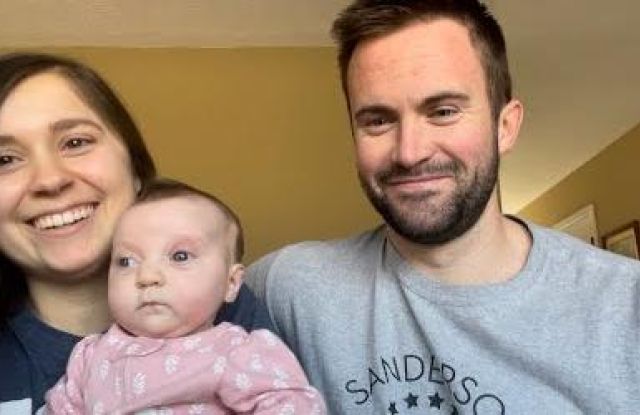

Toward a youth ministry that makes disciples (part 3)
Not all youth ministry activities are created equal. If our goal is to take a self-willed knucklehead and turn them into a disciple, it not only takes time (Jesus took approximately 1500 hours with his), it takes engagement in life-changing activities. In my April 8th blog, we looked at Jesus’ teaching method. I’m going to say some stuff here that sounds too rigid – please understand this is an initial stab at putting some definition on a squishy, relational process that must be grounded in love. You can’t turn it into a system or you’ll squeeze the life right out of it. The history of the church is the history of Jesus-followers doing what Peter tried to do on the Mount of Transfiguration and straitjacketing the Spirit with systems. I’m not going there with this blog – so cut me some slack in advance.
Let’s look at six activities available to us as disciplers and assess which of Jesus’ methods they employ: spiritual coaching, ministering together in small groups, counseling, ministering in large groups, teaching, and hanging out together. I’m going to multiply each activity times 2 to give it a score.
I rate spiritual coaching (2 Tim. 4:2 stuff discussed in earlier blogs) the highest – through one-on-one coaching, you can teach, model, let them try it out, debrief, and let them replicate the process with someone else. So, it gets a 10. Just hanging out, by contrast, doesn’t do any of these, but it does build trust, so I give it a 1. Of course, in the process of hanging out, you can move into spiritual coaching. And of course, you have to hang out a lot to earn the trust to be able to coach. So, like it or not, you have to do a lot of hanging out. Occasionally in life you get to “go for the spiritual jugular,” but usually, disciple-making moves at a pace dictated by trust, and trust takes years to earn.
Following this logic, here is how I rate the activities:
Spiritual coaching 10
Ministering together in a small group 8 (this does not mean Bible study – that is teaching)
Counseling 6 (explaining, trying out, and debriefing)
Ministering in a large group 4 (explaining, modeling)
Teaching 2 (explaining)
Hanging out 1
A lot of youth ministries focus on the least productive activities according to Jesus’ model: teaching and hanging out. If you want to make disciples that last, you have to do what Jesus did and invest the kind of time that Jesus did.


Seth,
Do you think it’s fair to say many youth workers (paid and non-paid) focus on teaching and hopefully hanging out but not spiritual coaching?
My experience reflects that because spiritual coaching is hard and not as easily copied and you have to create an intentional process of passing on the faith, both with students and your own family.
Good question, Len. I’m just one guy trying to track Jesus in this modern culture, I leave this kind of analysis to Youth Specialties or Barna. Having said that, the youth pastors I know are overwhelmingly roped into not even hanging out and teaching, but in PROGRAM ADMINISTRATION! Buying tickets to 6 Flags, promoting it, lining up leaders and rides, dealing with parents, ad nauseum. It burns most of ’em out if they don’t have the skill of delegating this stuff to leaders. And then they’re not ministering to youth, but to leaders.
I would agree with your comment above about a youth pastor actually being a program administrator. Thank you for pointing out what should be obvious to parents, but isn’t.
I would love to hear your definitions of the items you mentioned. Some are more self-explanatory than others. Maybe just specific examples from Jesus ministry could get me started.
I would also add that spiritual coaching is not only hard because of the time-intensity it takes, as well as the frustration of what you mentioned, but also because part of allowing a disciple to learn and grow is to allow them to fail… which, in our culture, is a reflection on our abilities, and setting us up for… what – discipline (you should have overseen that kid more), guilt, etc. It’s easier to simply meet most (though not all) parents’ expectations and just be a spiritual babysitter who feeds the kids information every week. Not better, just easier. I’m fighting it, but it’s tough at times.
IT is tough to do what you have not done or in other words, “You cannot take people farther than you have gone.” Spiritual coaching is not modelled in youth ministry training programs. Therefore, yp struggles to do it or even know about it. Add in the pressure to be the program administrator guy and then a pinch of jealousy from the Sr. Pastor and then a bowl of tension with a conservative board that does not believe money should be spent on a youth ministry anyway…and boomyou have a ministry that lacks heart and discipleship but has plently of program, burnout, and rotton fruit.
I took several Youth Ministry classes in college and we practiced all kinds of things like: leading a Bible study, preparing a sermon, passing an interview, budgeting, how to control jr. highers (we role played this one and it was always a good time), retreat planning, the 7 laws, and much more. The best parts of the program was the discussion times when the profs just told stories (mainly war stories with lots of wounds). That is a form of spiritual coaching but that was about it. We read books on teaching, discipleship, and mentoring but rarely can a book teach you how to apply because it cannot walk with you as you try to live out its content. (Brennan Manning has been a spiritual mentor with me through his writing but he is unavailable during crisis or celebration so it is one way.)
Hanging out should never be under rated…so many yp get slammed for being experts in XBOX and for not growing up but youth need someone to hang out and not be intense all the time. The discipleship process needs to be inline with the development process of the youth, and at the same time it needs to be challening them like nothing else in their life.
peace
more definitions in future blogs. here’s a quickie: Jesus applying 2 Tim. 4:2 on the subject of faith – “look at that person’s awesome faith” he says on the one hand, or “oh you of little faith” he says on the other. that’s spiritual coaching.
as to the program administrator deal – check out my other blog: http://youthworkerblog.com/
I abandoned it because, why beat a dead horse? you have to take the St. Francis of Asisi approach and opt out. as Mike Yaconelli pointed out, the system is broke, dude.
Seth,
In my experience with youth as well as adults, there might be a 7th category that Christ used and that was “work.” When Christ sent them out 2 by 2, they were working or applying what he was teaching but in pairs. I have found share work (Paid or unpaid)(or simulations of work like a hobby) as a more powerful methodology to see the real person and even to build trust than one on one mentoring or small groups. For example, soldiers in war (work) build trust relationship real fast. “I trust that he will cover my backside.”
Comments on building trust:
1. How do we define the miminum threshold of trust which allows us to disciple teens (begin speaking into their lives)with power and authority?
2. I think that it does take years of hanging out to build trust (Christ did not take years) but I think there may be a methodology that can build trust within months, weeks and in some cases even days but… By the way it takes years to disciple a person into reproductivity even when a miminum level of trust comes quickly.
3. Methodology to build trust (I hope it is not a system because the teen dictates the direction of the experience not the mentor. It is somewhat different than your COUNSELING: explaining, trying out, and debriefing)
We have found that a focus on self for non-Christian teens or Christian teens (Priests in the Priesthood of believers) is powerful. For example, if over a 1 1/2 hour one on one conversation, I can successfully encouarge 80% of the teens to grapple with and answer the following three questions. Then, I have initially earned the right/trust to ask, “Where are your spiritually?” They give candid answers because I have been interested in who they are as a person not dumping my experience or even Christ’s experience on them yet.
1. What are your passions?
2. What are your talents? (and spiritual gifts)
3. What projects could you create that would use your passions and talents as well as you spiritual gifts over the next four years?
We can usually brainstorm 2-5 potential projects. We then encourage them to think about these issues and add to the lists over the next week and meet again.
I hope you can see where this might go. It is a great evangelism tool or a great discipling tool because you are focused on how God is going to manifest Himself through the teen over the next 3-4 years. How will Christ transform your world (family, high school, work) over the next 3-4 years?
By the way, we treat high school as legitimate work.
By the way, only 20%-25% go on to complete a project and the self discovery process. It is not a panecea. As with most groups, we cannot talk about TEENS. We need to segment that category and develop more targeted activities.
By the way, this also works with adults!!!
In this case, that’s what I have chosen to do. I’ll take a look at that blog, but I will be leaving my current position as of July 15. I am currently looking for a church that will allow me to move along the lines that you are discussing, or at least start putting the ball in motion to take us there. It takes time to turn ideas, even if you’re willing to lose a few. Thank you for putting on “paper” things I’ve been thinking for a while, but wasn’t sure how to articulate. Thank you, too, for the encouragement.